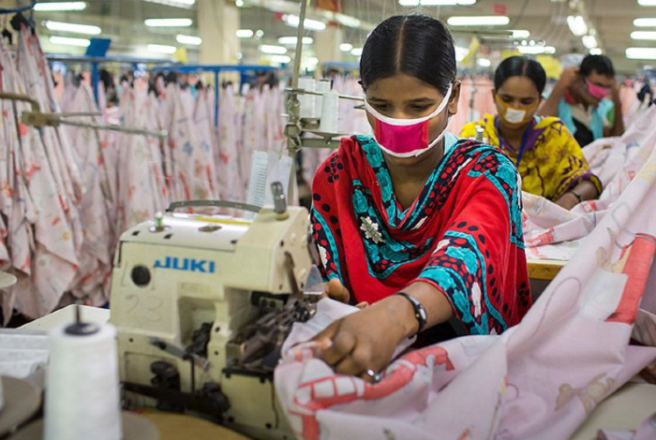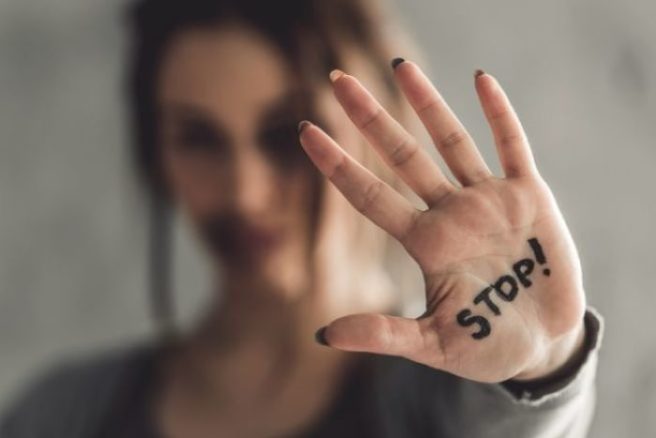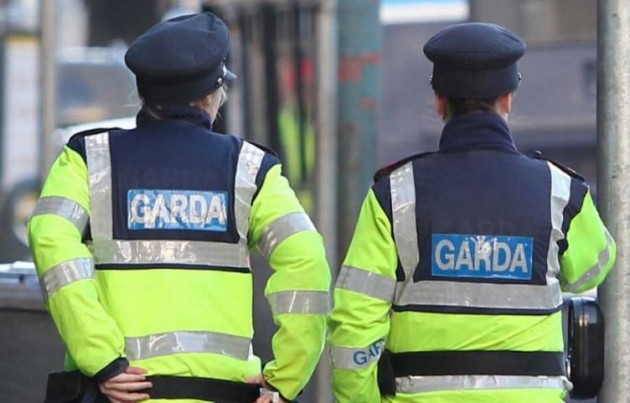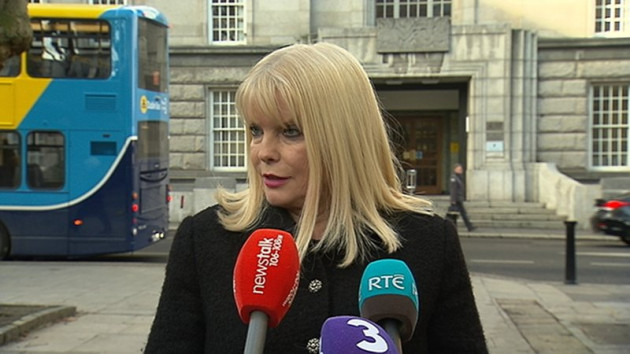
Irish people experiencing a growing concern for garment workers
The first ever law on ending violence and harassment in the working world at the International Labour Conference (ILC) in Geneva is being negotiated by governments, trade unions and employers.
ActionAid is addressing the issue, demanding that all parties agree to a strong, binding treaty which protects women and marginalised workers.
The organisation has now released the findings of a survey in order to gain awareness about the ILC conference and the extreme importance of laws to protect women.
All women (and men) should feel safe at work. The @ILO is hosting its annual International Labour Conference and ActionAid is urging attendees adopt a convention to end workplace harassment once and for all. #ILO100 #AllWomenWork #EndGBVatWork
— ActionAid Ireland (@Actionaid_Ire) June 13, 2019
Just 37 percent of Irish people who participated knew that there is zero laws a an international level to eliminate workplace gender-based violence and harassment
82 percent of those surveyed said that they care about the conditions in the factories where their clothes are made, but 65 percent claimed it's hard to know which brands are ethical.
82 percent of consumers in Ireland stated that if a clothing brand was exposed to in the media because its clothes are made in factories where women experience sexual violence and harassment, they would refuse to shop there.
Thank you to the @IrishTimes for publishing our letter this morning on the importance of protecting marginalised workers https://t.co/y0rqKBv6mZ #ILO100 #allwomenwork
— ActionAid Ireland (@Actionaid_Ire) June 13, 2019
28 per cent of Irish people believe that governments are responsible for making sure that clothes are produced in an ethical way. This would mean that, in factories, workers are paid a living wage, work in safe conditions and are free from sexual violence or harassment.
38 percent however claimed it's the employer's responsibility. The global justice organisation also gathered data from 200 garment factory workers, including 181 women, in the capital city of Bangladesh.
80 percent of the workers claimed they were subjected to sexual harassment and/or abuse at work.
ActionAid have heard shocking stories of colleagues sexually assaulted on the factory floor, women abused for not meeting targets and losing their job for being pregnant.
72 percent of garment worker respondents said they had been subjected to extreme verbal abuse at work.
73 per cent of Irish consumers wouldn’t work in a place where workers face gender-based violence, according to ActionAid, and 80 per cent would say no to working in unsafe buildings. Yet garment workers in Bangladesh face these dangerous conditions on a daily basis, and it's not headline news.
The Rana Plaza tragedy killed over 1,100 people just six years ago, but all garment workers surveyed still reported some level of concern over safety in the workplace.
90 percent stated that their jobs were impacting their own health, such as eyesight, injured hands and feet, exhaustion, depression and severe back pain.
Women garment workers face shocking levels of sexual violence and harassment. A new global treaty to end gender-based violence at work is being negotiated this week, it must be strong and protect all women and marginalised workers #ILO100 #AllWomenWork #EndGBVatWork pic.twitter.com/Mcj4ToYaH1
— ActionAid Ireland (@Actionaid_Ire) June 11, 2019
CEO of ActionAid Ireland, Siobhan McGee, said;
“The #MeToo movement has brought the issue of sexual violence and harassment at work to the fore. But, the most vulnerable, marginalised and underpaid workers cannot be left out.
"Governments and employers now have the opportunity to act by voting in favour of the first international law to tackle gender-based violence in the world of work."
“Right now, 59 countries still have no national laws against violence and harassment at work, and so a progressive, binding, global treaty is the only way to protect women and other marginalised workers," McGee continued.
“Our research shows that the majority of Irish consumers believe it is the responsibility of governments and brands to protect workers in global supply chains, such as the garment industry.
“Consumers, hit by austerity measures and rising global inequality, face tough choices when the only clothes they can afford are cheap, fast fashion that puts garment workers at risk of abuse. It’s up to brands and governments to ensure that the decision to buy ethical clothing is not only a choice the rich can make.”
One woman, Shopna, has been a garment worker for 16 years and now operates a sewing machine. She has experienced many unwanted sexual advances over the years, and witnessed incidents of assault on other women by powerful men.
Shopna unfortunately faced harassment from an inappropriate factory manager, who repeatedly asked her to stay back after work, but she said no. He violently attacked her after she came into work earlier than other workers.
Half of Irish people wouldn’t report the rape of somebody else
A survey carried out by Newstalk has released results stating that half of Irish people would not report rape to the Gardaí if they knew it happened to someone else.
Newstalk’s Women in Ireland Survey shows that while eight out of ten people would report a rape if it was committed against them, when it came to somebody else the reports shifted entirely.
Red C conducted the survey for Newstalk in order to examine sexual violence in the country, and it found that women were significantly less likely to report an incident of rape of someone other than themselves.
Only four out of ten women said they would report an incident, and six out of ten men, meaning that women are more likely to remain quiet about sexual violence occurring to a friend, acquaintance, family member, or even a stranger.
The survey also found that twice as many women as men have experienced gender discrimination, and three quarters of people would report sexual harassment at work.
The Women in Ireland survey enquired about if participants would report other sexual assault incidences such as groping, indecent exposure, sexual harassment at work or non-consensual touching.
Apparently, three quarters of people would report indecent exposure or sexual harassment while at work, and two thirds of people would give a statement regarding groping to An Garda Síochána.
Regarding discrimination, twice as many women as men said they have experienced prejudicial treatment with younger people.
Interestingly, people who are living in Dublin are evidently more likely to have experienced gender discrimination in their lives.
Overall, the report shows troubling responses from our country, which has had two major rape trial controversies in the last year alone which have shed light on the worrying ways in which our justice system treats sexual assault victims.
Universities that don’t promote female staff have ‘nowhere to hide’
Third level colleges and institutions across the country have been told they will lose out on access to research funding if they are found to be involved in gender discrimination.
Minister of State for Higher Education, Mary Mitchell O'Connor, warned that colleges have “nowhere to hide” should they fail to promote more deserving female colleagues to senior positions.
As it stands, women make up less that have of lecturers in universities across the country, with even less at higher grades such as associate professor and professor.
Speaking to The Irish Times, Minister O'Connor said: “We need to send a message loud and clear to the institutions. There is nowhere to hide now. We want to see results. And there will be penalties.”
What's more, State funding will also be withheld if institutions fail to meet performance targets.
Speaking on the importance of these new measures, she said: “Young women are going into college, getting high points, so why are so few reaching professorships?”
“ What kind of message are we giving to young girls? They need to see role models in third level education.”












